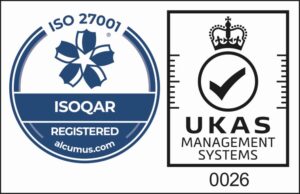The Role of IT MSPs in Cybersecurity: Strengthening Business Defenses Against Cyber Threats
In today’s digital landscape, cybersecurity has become a critical priority for businesses of all sizes. Cyber threats are constantly evolving, and organizations need to implement robust security measures to protect their sensitive data, intellectual property, and customer information. IT Managed Service Providers (MSPs) play a crucial role in assisting businesses in strengthening their security posture and mitigating cyber risks. Let’s explore how MSPs support businesses in cybersecurity:
Risk Assessment and Security Strategy
MSPs conduct comprehensive risk assessments to identify vulnerabilities and assess the overall security posture of businesses. They work closely with organizations to understand their unique security requirements, industry-specific compliance needs, and risk tolerance. Based on the assessment, MSPs develop tailored security strategies and roadmaps, outlining the necessary measures to protect against potential threats.
Threat Monitoring and Incident Response
MSPs employ advanced threat monitoring tools and technologies to detect and respond to cybersecurity incidents promptly. They continuously monitor networks, systems, and applications for any suspicious activities or anomalies. In the event of a security breach or incident, MSPs have robust incident response protocols in place to minimize the impact and swiftly mitigate the risks. They work closely with businesses to investigate the incident, contain the breach, restore operations, and prevent future occurrences.
Firewall and Intrusion Detection/Prevention
MSPs help businesses establish and manage robust network security defenses, including firewalls and intrusion detection/prevention systems. They configure and monitor these security controls to detect and prevent unauthorized access, malware infections, and other malicious activities. MSPs continuously update and patch these systems to ensure they are equipped to handle the latest cyber threats effectively.
Endpoint Security
MSPs assist businesses in implementing and managing comprehensive endpoint security solutions. They deploy advanced antivirus and anti-malware software, perform regular system scans, and enforce policies for secure device usage. MSPs also implement endpoint detection and response (EDR) solutions that provide real-time threat visibility and enable quick response to potential security incidents on endpoints such as laptops, desktops, and mobile devices.
Security Awareness Training
MSPs recognize the importance of educating employees about cybersecurity best practices. They offer security awareness training programs to businesses, empowering employees to identify and respond to potential security threats effectively. MSPs provide guidance on creating strong passwords, recognizing phishing emails, and understanding social engineering tactics. By fostering a culture of security awareness, businesses can significantly reduce the risk of human error-related security incidents.
Data Backup and Disaster Recovery
MSPs help businesses establish robust data backup and disaster recovery strategies. They implement regular automated backups of critical data, ensuring it is stored securely and can be restored in the event of data loss or a ransomware attack. MSPs develop comprehensive disaster recovery plans that outline the steps to restore systems and resume operations as quickly as possible in the event of a cyber incident or natural disaster.
Compliance and Regulatory Support
MSPs assist businesses in achieving compliance with industry regulations and data protection standards. They stay up to date with evolving compliance requirements such as the General Data Protection Regulation (GDPR) or the Health Insurance Portability and Accountability Act (HIPAA). MSPs help businesses implement the necessary technical and procedural controls to meet these standards and provide guidance on maintaining compliance.
Security Audits and Assessments
MSPs conduct regular security audits and assessments to identify any gaps in security controls and ensure ongoing compliance. They perform vulnerability assessments, penetration testing, and security code reviews to identify potential weaknesses in networks, systems, and applications. MSPs provide actionable recommendations to remediate vulnerabilities and strengthen the overall security posture of businesses.
By partnering with IT MSPs for cybersecurity, businesses can benefit from specialized expertise, advanced tools, and proactive security measures. MSPs help businesses stay ahead of emerging threats, reduce the risk of security incidents, and protect their valuable assets. With a comprehensive cybersecurity strategy and the support of MSPs, organizations can focus on their core operations with confidence, knowing that their digital assets are protected against evolving cyber threats.




